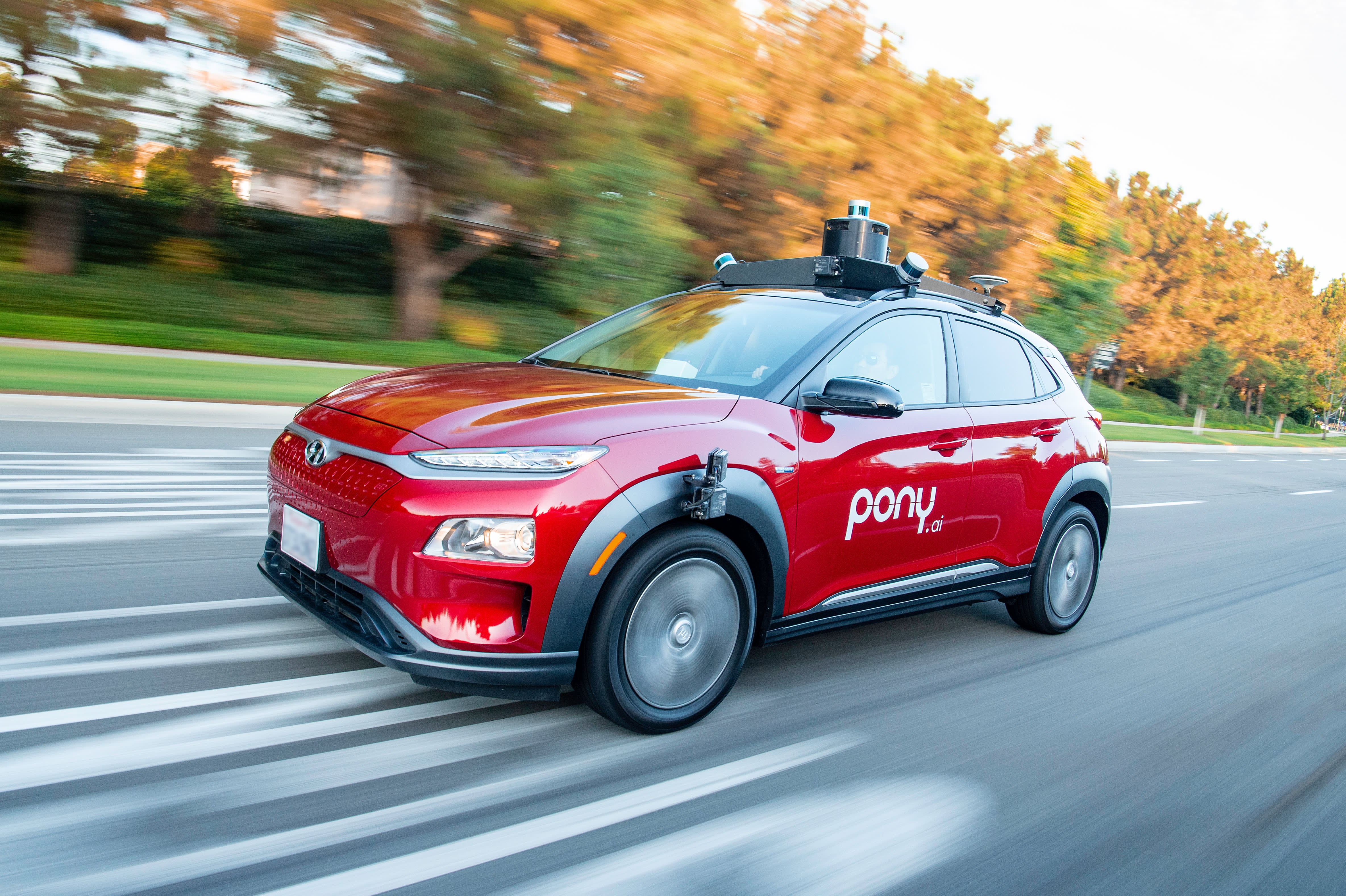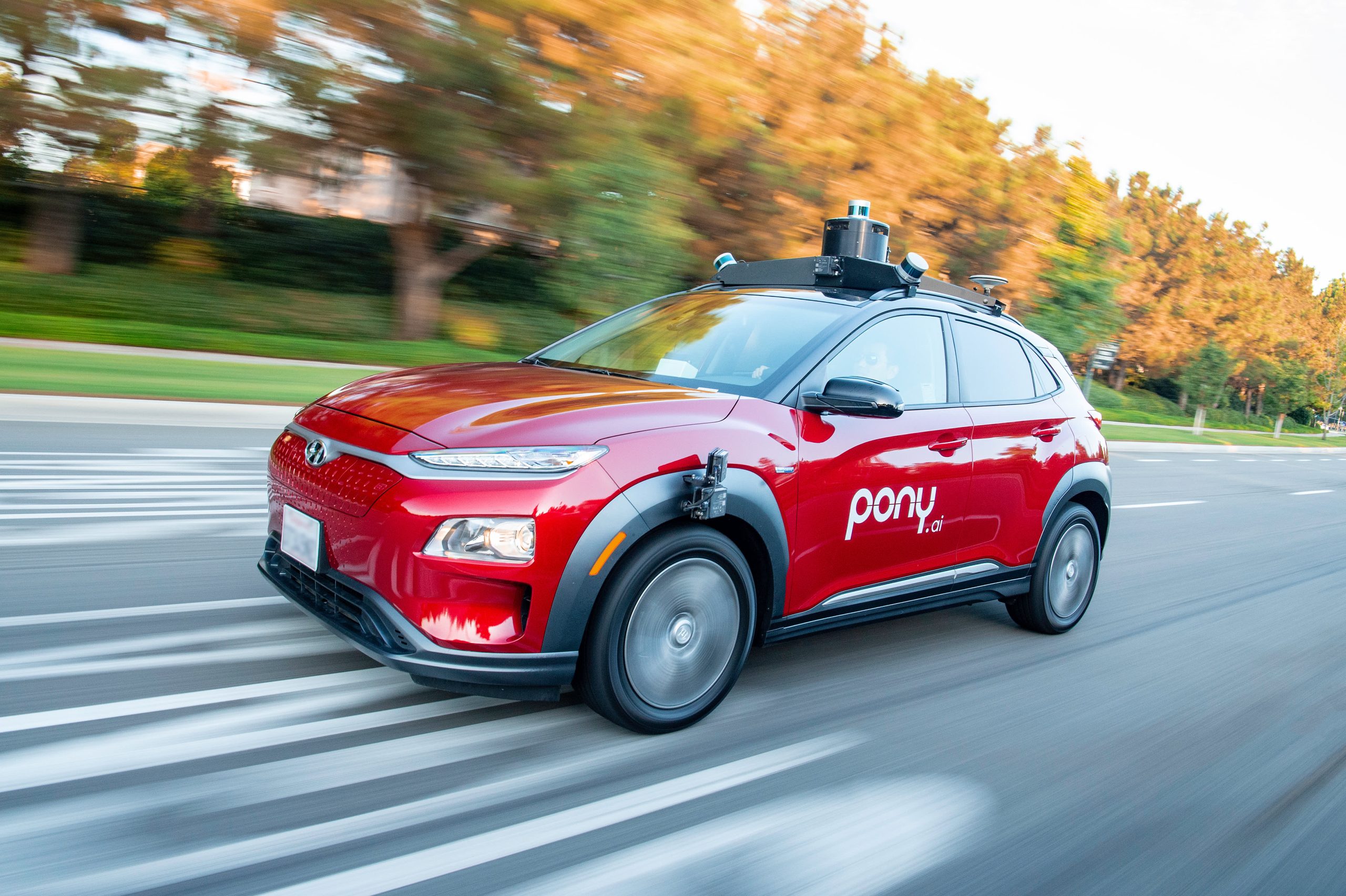
A Pony.ai autonomous car.
Pony.ai
China’s Pony.ai on Thursday saw its shares drop over 14%, while rival WeRide fell nearly 12% as the autonomous driving companies began trading in Hong Kong.
Pony.ai and WeRide, which are already listed in the U.S., raised 6.71 billion Hong Kong dollars (about $860 million) and HK$2.39 billion, respectively, in their initial public offerings.
The companies are striving to keep pace with larger competitors such as Baidu‘s Apollo Go in China and Alphabet‘s Waymo in the U.S. amid growing interest in autonomous technologies.
Pony.ai and WeRide, both headquartered in Guangzhou, China, stated that funds would go toward scaling efforts, and the development of Level 4 autonomous driving — a measure of driving automation that does not require human monitoring or intervention under specific environments.
WeRide CEO Tony Xu Han told CNBC that proceeds from the latest fundraising would also be used to boost the company’s artificial intelligence capabilities and data center capacity, while Pony.ai CEO James Peng emphasized on building autonomous-driving parking and charging infrastructure, besides AI development.
The CEOs stressed on driver safety as their companies seek global expansion, including in their home markets of China, where they have already begun operating fully autonomous robotaxis in some cities.
New regions the companies are expanding to include the Middle East, Europe and Asian countries such as Singapore. They have yet to receive full approvals to operate their robotaxis in most of those regions.
The permits that both companies have received to test and operate their self-driving vehicles became a contentious issue in the lead up to the listings.
According to local Chinese media reports, WeRide CFO Li Xuan claimed last week that Pony.ai had misinformed investors by understating the number of cities where WeRide had operations, among other issues.
Pony.ai did not immediately respond to a request for comment on the matter.
In the U.S., both companies are aiming for a partnership with California-based Uber to allow them to deploy their robotaxis on the firm’s ride-hailing platform after receiving regulatory approval.
However, their U.S. plans face headwinds as earlier this year the government finalized a rule effectively banning Chinese technology in connected vehicles, including self-driving systems.
“With the uncertainty in the markets around the world and the fact that there would be intense scrutiny on a Pony or WeRide trying to enter the U.S. market, a dual listing is a lot about risk mitigation,” said Tu Le, founder and managing director at Sino Auto Insights.
He added that the listings were also an acknowledgement that it’s gonna take a lot of capital and an endorsement of a market outside the U.S. for Pony.ai and WeRide to succeed.
In U.S. trading on Wednesday, Pony.ai closed down about 2%, while WeRide fell 5.3%.
Hong Kong IPO shift
Pony.ai and WeRide’s competing listings highlight a recent trend of Chinese companies seeking dual listings in Hong Kong in what has been a bounce-back year for the city’s IPO market.
The companies received approval from Hong Kong regulators to dual list in mid-October.
“For the HK stock exchange, clustering the listing at the same time helps to reinforce investor perception of HK as a tech-hub for Asia-focused technology companies,” Rolf Bulk, equity research analyst at New Street Research told CNBC.
In May, Chinese battery manufacturer and technology company CATL completed a secondary listing in Hong Kong, raising $5.2 billion in the world’s largest IPO so far this year.
The growing trend emerges amid geopolitical tensions and regulatory uncertainty in the U.S.
According to New Street Research’s Bulk, the Hong Kong listings for Pony.ai and WeRide will help the companies gain access to Asia-based capital and expand their presence in China and the region.
“However, it will do nothing to advance the progress of their technology stack and regulatory approvals in Western markets. If anything, gaining approval in Western markets may be more challenging with a HK secondary listing,” he added.
The listings could also help the firms keep up with competitors such as Baidu‘s Apollo Go in China and Alphabet‘s Waymo in the U.S., which currently have larger fleets.
“Pony and WeRide are right up there among the global leaders,” said Sino Auto Insights’ Le. “WeRide has diversified their service portfolio a bit more but they both see Uber and the Middle East as two viable partners in their ability to get more pilots launched outside of China.”
“Investors should pay special attention to how their technology evolves with AI and other new tools becoming more mainstream,” Le said.
— CNBC’s Elaine Yu and Anniek Bao contributed to this report.









